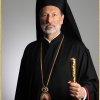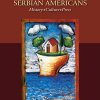During the Yugoslav conflicts from 1992 to 1999, she was the leading voice for Serbian-Americans in the nation’s capital as well as a spokesperson for Serbian people from Bosnia and Herzegovina and its Republika Srpska entity, communicating to the media, public, US Congress and to government officials on Balkan issues of importance to the Serbian people—including their political, territorial and human rights.
She has lectured and spoken extensively as a noted Balkans expert at think tanks and universities including Carnegie Endowment for Peace, CATO Institute and others, and has authored two leading books on Serbia, US foreign policy and the Balkans (War of Words: Washington Tackles the Yugoslav Conflict published at the end of 1999 and Heart of Serbia: A Cultural Journey published in 2012.





